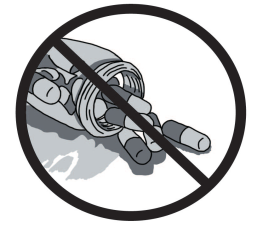Getting Well Without Antibiotics
What are antibiotics?Strong medicines used to treat infections caused by bacteria. Viruses are not killed by antibiotics.
Should antibiotics be used for common ailments like coughs, colds and ‘flu’?No! These common ailments are usually caused by viruses (not bacteria). Instead, use over-the-counter medicines for colds, as needed; drink lots of water and rest.
 What happens if we use antibiotics too often?
What happens if we use antibiotics too often?
By over-using antibiotics for minor illnesses, some bacteria will no longer be killed by antibiotics. This is called antibiotic resistance.
Could we then use other antibiotics?Yes, but they may not be as effective, and may have more side-effects. Eventually bacteria may become resistant to these antibiotics too. Humans may run out of antibiotics faster than new ones are discovered. If everyone abuses antibiotics, there will be an ever-increasing number of antibiotic-resistant bacteria in the world. This is already a serious problem.
How can antibiotic resistance be avoided?By using antibiotics correctly for bacterial infections only.
When are antibiotics needed?Sometimes, simple colds become complicated by bacterial growth along with the original viruses. Also, serious infections like meningitis, pneumonia, and kidney infections require antibiotics. Your doctor will decide when you need them.
How can I help?Only use antibiotics when necessary and make sure to take the full dosage prescribed by your doctor. Antibiotics may be life-saving and they are more likely to work if they are used carefully. Antibiotic resistance is a global public health issue in which we all have a part to play. Bacteria will always try to survive by evolving and developing resistance to antibiotics, so we must stay one step ahead of the game. That means using fewer antibiotics, not more.